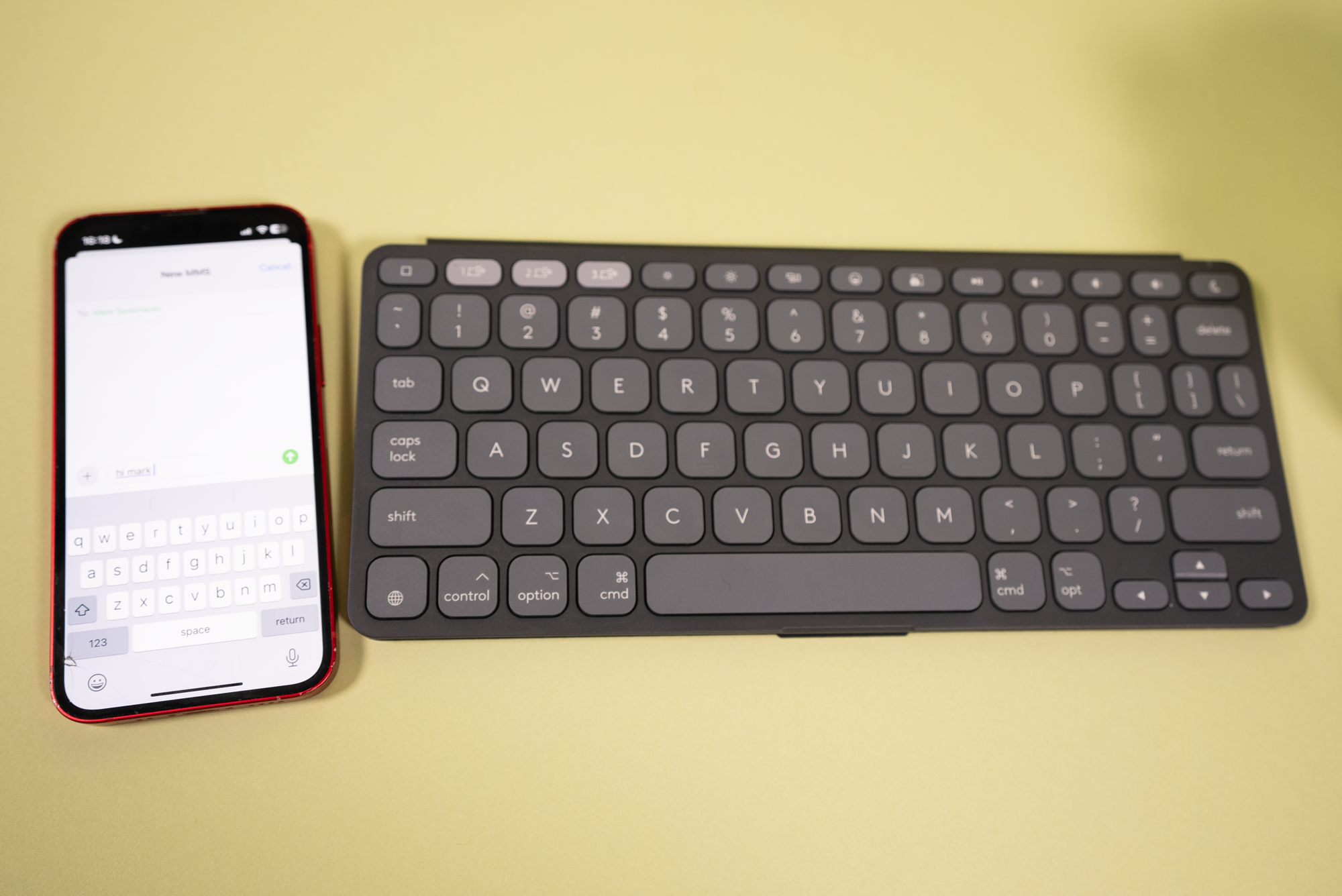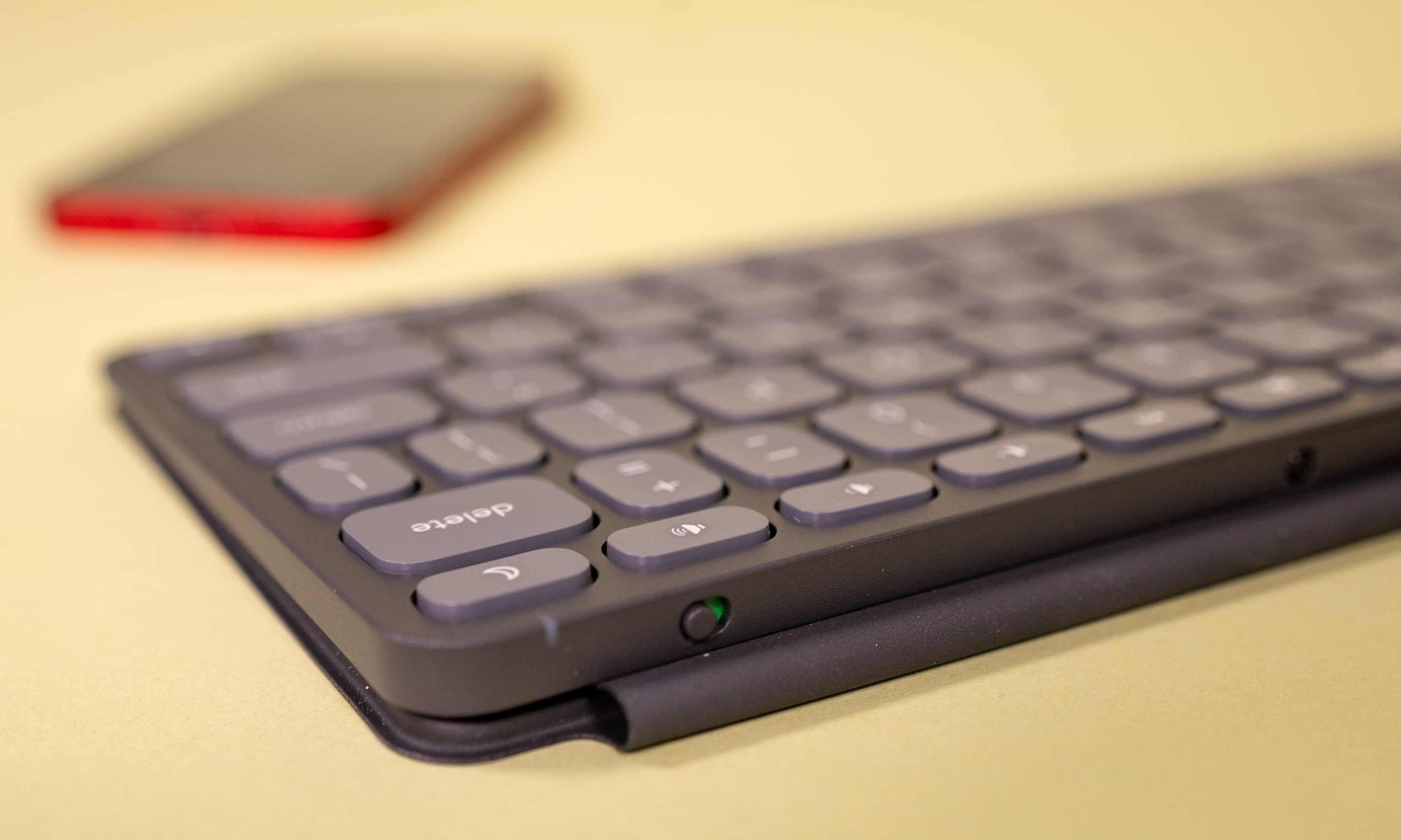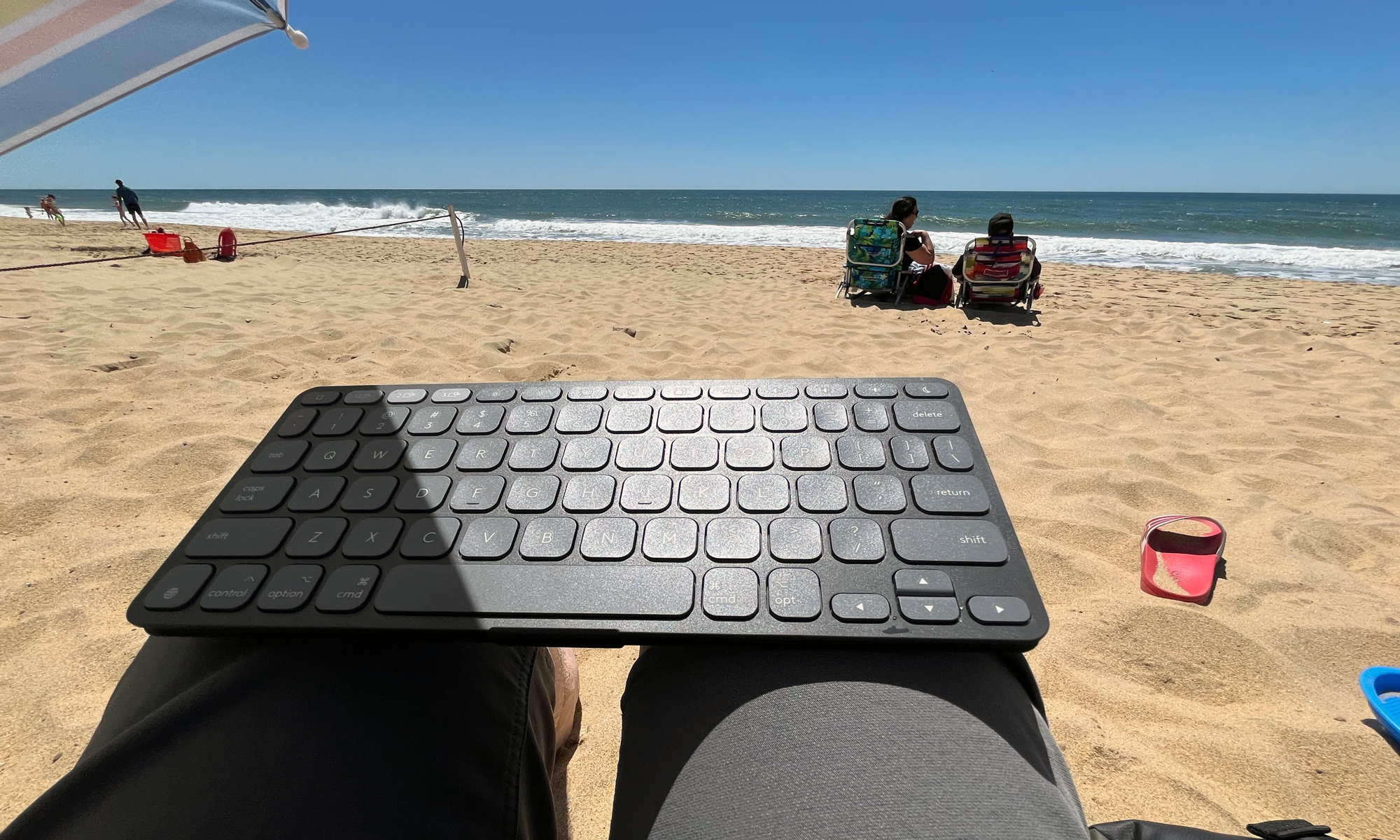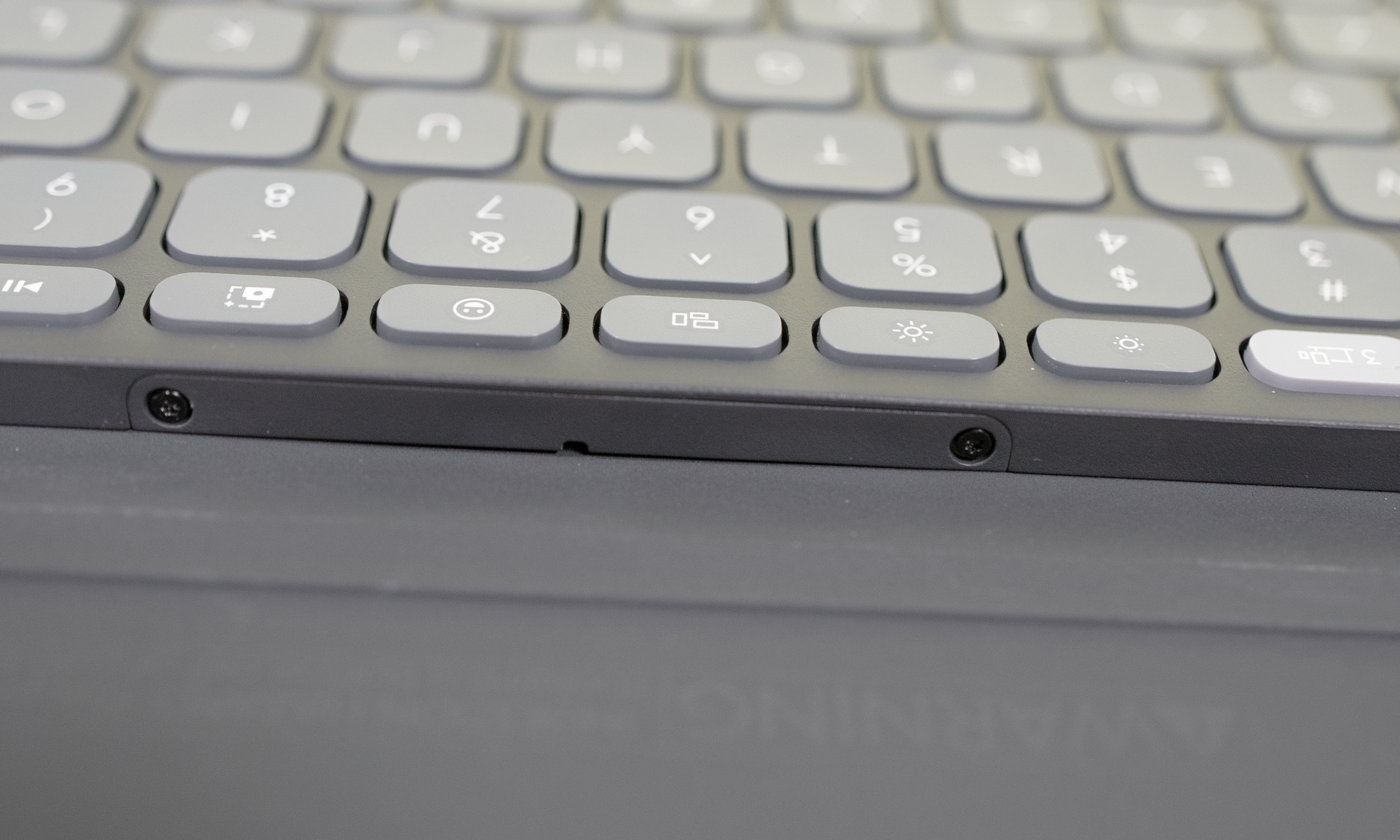
With the increased focus on information security in the corporate world, employment self-preservation dictates that you should assume anything you do on your work laptop is being viewed by your employer.
Avoid Instagram, personal email, Reddit, WhatsApp, all of it. Some folks don’t even use the company wifi on their iPhones, which also seems like a not-terrible idea. If this all sounds a little paranoid — and it might be! — just let the anecdotes of companies spying on their employees in the name of security wash over you: There’s seemingly a new tale every few months of creepiness that has leaked beyond the barriers of NDAs and HR departments.

Why buy a portable keyboard?
What does all this have to do with a portable keyboard review? Well, a portable keyboard might be the solution to this modern problem. Suppose you need to attend to critical personal matters at work, say on your lunch break or in an emergency-ish situation like sending your child’s medical forms to their school. Or you just want to engage in that one never-ending group text with your friends about an international soccer tournament. Pecking out those hot takes and inside jokes on your phone's tiny keyboard is slow and often not at all fun. The alternative might be signing into iMessage with your personal Apple ID on your work laptop, which also feels like a minefield. (Do not set up your iMessage on your work computer, people!)
If you lug your personal laptop to work on the subway, you might be tempted to use the company’s wifi, another no-no. The lines get blurrier if you’re one of the millions of people who work from home. In the comfort of your own living room, you might, without realizing it, do something personal on your work-issued laptop and regret it — or at least worry about it. Toggling between personal and work computers at home is also tedious.
The Keys-to-Go 2 includes a few terrific upgrades from the first-generation keyboard, released in November 2014, nearly a decade ago.
The solution for me, and I hope for you, is to do your personal stuff on your iPhone or iPad during work hours. You deserve a break; just don’t take it on your work computer.
Ensure your work-issued laptop is pristine, and use the Keys-To-Go 2 from Logitech to quickly power through personal tasks on your phone, free from the gaze of corporate Sauron.
Logitech's marketing for its newest keyboard is all about jet setting; a briefing room in Manhattan prepared for the media was made up to resemble a boarding gate at an airport. Don't get me wrong; I traveled with the keyboard, and it was good. But I used this powerful clicky keyboard, which you never have to charge, every day — not just while traveling. It's absolutely perfect for personal tasks while at work.
The Keys-to-Go 2 includes a few terrific upgrades from the first-generation keyboard, released in November 2014, nearly a decade ago.

What's new in the Logitech Keys-to-Go 2
In my own ranked order, here are the top five upgrades for the Logitech Keys-to-Go 2 keyboard over the original:
- It runs on two CR-2032 coin-cell batteries, aka Apple Air Tag batteries. There is no longer a micro-USB; it seems that 2007 technology is finally going away.
- The power button is easy to turn on and off. The first-generation model had a recessed power button that was, at best, difficult and, at worst, painful to toggle. This new keyboard has a raised slider that approaches satisfying in its action.
- It has a magnetic cover that stops the keyboard from sliding across your desk, even more so if your desk is metal.
- That cover also protects the newly raised keys, which make typing a speedy, buoyant exercise. Key travel is the same distance as the first-generation keyboard (1 millimeter), but these keys are raised off the deck. Finally, there are 18 millimeters between keys instead of 17, and that little sliver of space makes a titanic difference.
- It’s somehow even slimmer-feeling and tougher than the original.

An honorable mention for the Keys-To-Go 2 for me, but maybe a deciding factor for you, is that Logitech brought its Easy Switch technology to the keyboard. You can quickly toggle between three devices using the same keyboard. If you, like me, love a Logitech mouse (MX Master 3 for life!), you’ll be familiar with this function. The keyboard also has a new top row of shortcut keys to control brightness, add emojis, control volume, and play or pause media, among other functions.
Rebecca Wang, Global Product Manager at Logitech, tells Laptop Mag the decision to go with two batteries (which give it a three-year life) was based on two factors: The team wanted to keep the design slim, and a Micro USB port wouldn’t support that. And, she says, “people don't want to necessarily bother with rechargeable solutions on the go because sometimes we struggle to find power.” Amen.
The cover, a welcome addition to this peripheral, is more than an add-on. Gen-1 of this keyboard had fabric-wrapped keys to improve its durability. But fabric-wrapped keys aren’t the most fun for extensive typing. It’s something Wang’s team heard from users. So they made the Keys-To-Go 2’s keys more like the keys of a traditional laptop – fun to click on but very sensitive to drops and spills. Enter the magnetized cover, which stays shut in my backpack on bikes and subways, and protects the keys.
“I think it's a great accomplishment that we've been able to achieve — creating such a thin and light keyboard while still bringing a great typing experience,” Wang tells Laptop.
After using this keyboard a lot over the past few weeks to keep my work computer free of chat about the Euros or family texts about my nephew’s birthday, I don’t disagree with Wang. The typing experience is far better than what you might expect from a tiny keyboard, which comes in two key layouts. A universal one (Android, ChromeOS, Windows, iPadOS, iOS, and macOS) and an Apple one (iPadOS, iOS, and macOS).
Just on the toughness of this super-thin (8.77mm/third of an inch) and super-light (222 grams/half a pound) keyboard: The flex exists. And it will break if you sit on it. But you can rest assured that if you throw it into your duffel bag for a trip to Oahu or the office, it will be in good shape when you pull it out and turn it on.

No more charging anxiety
The batteries eliminate the charge anxiety that I feel with my mechanical Keychron keyboard. I opt to use the cable connection instead of Bluetooth for fear of losing power at the worst possible time. With the Keys-To-Go 2, I know there’s a two-hour shut-off timer, and having used Apple Air Tags for years now, I’m familiar enough with the lifespan of a CR-2032 coin cell battery. There’s also a liberation in knowing you cannot control something: If it dies, it dies.
Speaking of changing batteries, the Keys-To-Go 2 doesn’t come with the tool you need to change them. We’re talking about the T-5 Torx screwdriver. Familiar to home electronics enthusiasts and bicycle mechanics, the star-shaped bolts that keep the battery cover closed can only be loosened with a tool that sells for about $3-$5. (Batteries for the Keys-to-Go 2 are included.)

“Since most customers likely already have one on hand, we decided not to include the screwdriver,” a Logitech spokesperson tells Laptop via email when we ask if we can borrow a tiny screwdriver.
The rep also notes that “the T5 Torx screwdriver is the typical screwdriver associated with repairs around the house, and it has become commonly available in tech toolkits/precision screwdriver sets for electronics, watches, and glasses.”
Worst-case scenario, you have three years to buy one T5 screwdriver or get a fancy Torx set.

Bottom line
Let’s talk about cost for a second. The MSRP for the Keys-To-Go 2 is $79.99, which is $10 more than its predecessor. Wang explains the jump to Laptop like this: “The cost of things has gone up and this is definitely part of it, but we also think we provide more value — like adding features like Easy Switch, which is not present on previous generations. We also updated the shortcut keys to add more relevant features.”
The Keys-To-Go 2 is like air conditioning. You can live without it, but like in an office where IT may or may not be tracking your every move, you’ll sweat a lot less when you have it.







